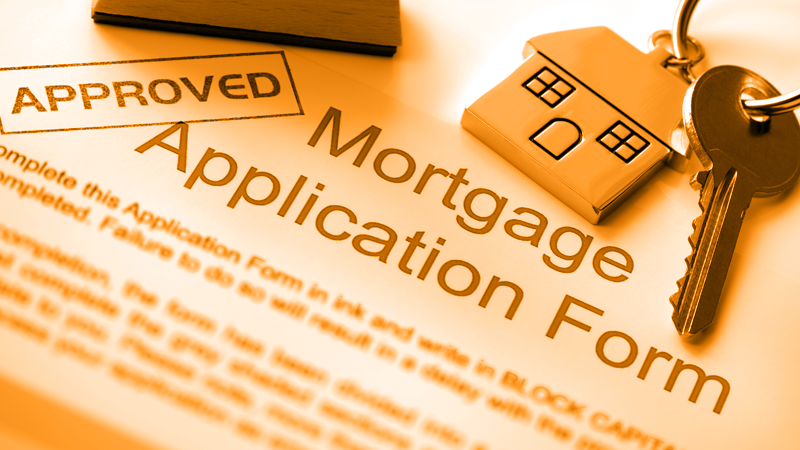How Long Does a Mortgage Application Take to be Approved? (2025)


How Long Does a Mortgage Application Take to be Approved?
- How long does a mortgage application take to be approved?
- Mortgage Application Process Timeline:
- How long does it take to get a valuation done?
- How long does it take between a mortgage valuation and offer?
- How long does it take to exchange contracts?
- How long does completion take?
- How Long Does a Mortgage Offer Last?
- Is it possible to speed up the mortgage application process?
- How long does it take to get a mortgage if I've got a poor credit history?
- Key Takeaways on your Mortgage Application Timeline
The journey to homeownership can be quite extensive. From countless property viewings to substantial documentation requirements and various verification processes, there’s much to navigate before you finally receive the keys to your new home.
Our comprehensive guide explores the mortgage process timeline, providing essential insights into what you can expect during your mortgage application journey.
It’s crucial to understand that property purchases cannot proceed without securing mortgage approval from a lender if you require financial assistance.
The duration of mortgage approval depends on various elements, including your credit score, the outcome of the property valuation assessment, and a thorough evaluation of your income and affordability status.
Mortgage Application Process Timeline:
Mortgage in Principle
The mortgage process typically begins with obtaining a mortgage in principle.
This preliminary agreement from a lender indicates the amount they’re willing to lend you ‘in principle’ for your property purchase.
If you’ve prepared all required documentation (including identification such as a passport, recent bank statements covering 3-6 months, and income verification) and selected your preferred mortgage product, this step can be completed swiftly.
Lenders will request basic information about your financial situation, including income details and current monetary status, while conducting a credit check to verify your mortgage eligibility.
While this agreement doesn’t guarantee final mortgage approval, it serves as valuable proof of your serious buying intention when dealing with estate agents.
This document enables estate agents to show you properties within your approved borrowing range.
Additionally, securing a mortgage in principle might expedite your formal application process once you’ve identified your desired property, particularly if you proceed with the same lending institution.
Recommended guides:
The Mortgage Application
The subsequent phase involves submitting your formal mortgage application.
Completing the mortgage application form shouldn’t be time-consuming; it typically requires just a few hours, provided you’ve organised your financial documentation and have all necessary information readily available.
To progress through the mortgage process, lenders require comprehensive documentation to assess your borrowing eligibility and repayment capability. You’ll need to provide:
- Complete details of your chosen property, including the offer amount, along with the seller’s estate agent information and evidence of your deposit funds.
- Current, valid identification documents, such as a passport, to confirm your identity, plus recent proof of address (typically a utility bill dated within three months).
- Three months of bank statements demonstrating your regular financial commitments, including existing credit obligations, childcare expenses, utility payments, leisure activities, holiday expenditure, savings contributions, pension payments, and other routine outgoings.
- Employment verification through six months of payslips, including documentation of any bonuses or overtime earnings. Self-employed applicants must submit business accounts and several years of tax returns to demonstrate sustainable income levels.
Your lender will scrutinise this documentation whilst conducting a thorough credit assessment.
Assuming no additional information is required, the next stage in ‘how long does a mortgage approval take’ involves arranging a property valuation to verify the asking price and confirm the property’s mortgageability.
Understanding different mortgage types and associated fees is crucial during the mortgage process.
The standard valuation, which represents the minimum legal requirement for mortgage approval, is typically conducted by your lender.
A qualified surveyor will inspect the property, documenting any significant issues or defects that could impact its value.
The assessment includes a comparative analysis of similar properties sold locally to establish fair market value.
The findings are compiled into a Standard Valuation report for your lender’s review.
For additional peace of mind during the mortgage process, you might consider these more detailed survey options:
Full Buildings Survey – Previously termed a Structural Survey, this comprehensive assessment examines the property’s complete condition, identifying any structural irregularities, defects, necessary repairs, and ongoing maintenance requirements. This survey is particularly valuable for period properties, larger residences, or non-standard construction types.
A Homebuyer’s Report – This provides more extensive information than a Standard Valuation, including details about existing and potential future property issues, alongside anticipated maintenance and repair costs.
Assuming the valuation satisfies your lender and all other checks are successful, your mortgage application should receive approval, making your offer official.
Occasionally, the surveyor might determine that your offer or the asking price exceeds the property’s actual value.
This relatively common occurrence can stem from various factors, including current market conditions, structural issues, or sellers’ optimistic pricing expectations.
These reduced valuations serve not only to protect the lender but also to safeguard your interests, preventing you from overpaying for a property and potentially falling into negative equity.
Nevertheless, there remain several viable options for securing a mortgage in such situations.
You have the option to approach the seller with the valuation results to negotiate a potential reduction in the property price.
If these negotiations prove unsuccessful and you’re particularly keen on the property, you might consider increasing your deposit to bridge the difference.

How long does it take to get a valuation done?
Following your mortgage application submission, your lender will arrange for a surveyor to conduct a valuation, ensuring the property’s worth aligns with your intended purchase price.
The surveyor will liaise with the property’s estate agent to arrange access for conducting a comprehensive inspection and survey, examining both structural integrity and potential issues.
This assessment typically concludes within a day, as surveyors generally complete and submit their reports to the mortgage lender’s underwriter on the same day as the inspection.
Once the underwriter receives your completed survey, they will evaluate the valuation’s reasonableness and review any property concerns highlighted within the report.
The entire valuation process, from initiation to completion, typically spans approximately 2 weeks.
How long does it take between a mortgage valuation and offer?
Following receipt of the surveyor’s valuation, the lender’s underwriter will possess all necessary information to reach a final decision and proceed with issuing a mortgage offer.
Upon the mortgage lender’s decision to extend an offer, you’ll receive formal documentation via post. Your conveyancing solicitor will also receive a copy of this offer.
The timeframe for receiving an offer typically ranges from 2 to 20 days.
Mortgageable offers a free Equifax Credit Report as part of its service, with no obligation to proceed. Something worth considering.
How long does it take to exchange contracts?
After your solicitor receives the lender’s offer, contract exchange typically occurs within approximately 2 months.
Throughout the mortgage process, your solicitor will have been managing the conveyancing procedures.
This includes requesting local authority searches, which generally take about 1 month, though timelines may extend depending on the workload of your local authority’s property and land department.
Your solicitor will also handle additional responsibilities, such as corresponding with the seller’s legal representatives and addressing pertinent enquiries.
Upon completion of these preliminary steps, your solicitor will schedule a pre-exchange consultation, providing an opportunity to discuss any concerns or questions you may have.
If you’re satisfied with everything, they will proceed to arrange a mutually convenient completion date.
How long does completion take?
The mortgage process timeline can vary significantly, with the completion phase representing the final step in your property purchase journey. Understanding how long the mortgage approval takes helps set realistic expectations, as various factors can influence the overall duration from application to completion.
The completion date marks the momentous occasion when you can finally begin your life in your new property.
After contracts have been exchanged, your designated solicitor will proceed with finalising the mortgage process, culminating in your official homeownership status.
The timeframe between contract exchange and completion is flexible, depending on mutual agreement between the buyer and seller.
Following the agreement on a specific date, the process typically requires one week, as this is the standard duration for fund transfer once your solicitor has informed your mortgage lender.
Generally, the period from the exchange of contracts to completion spans approximately one month.
AFTER YOUR SOLICITOR RECEIVES THE LENDER'S OFFER, CONTRACT EXCHANGE TYPICALLY OCCURS WITHIN APPROXIMATELY 2 MONTHS.
How Long Does a Mortgage Offer Last?
A frequently asked question regarding ‘how long does a mortgage approval take’ is the duration of a mortgage offer’s validity. Typically, obtaining a mortgage offer requires between 2 and 6 weeks.
Nevertheless, if your application involves complexities, such as purchasing a non-traditional property or having credit issues, the mortgage process might extend beyond this timeframe.
Upon approval of your mortgage application, offers generally remain valid for a 6-month period. It’s worth noting that certain lenders may impose specific completion deadlines for their offers.
Should this deadline expire, whilst you may still pursue a mortgage with the same lender, they will likely need to reassess your eligibility as circumstances could have changed.
Consequently, you might need to restart the application process, and your new offer could differ based on your current situation.
Is it possible to speed up the mortgage application process?
Engaging a mortgage broker can significantly expedite the mortgage process, as they possess comprehensive knowledge of current market offerings and can identify products you’re most likely to qualify for.
This approach saves considerable time by eliminating the need to research suitable deals independently.
Your broker will assist with application form completion and identify necessary documentation to streamline the process.
Additionally, they’ll manage application submission and coordinate with your solicitor to accelerate the overall procedure.
How long does it take to get a mortgage if I've got a poor credit history?
Securing a mortgage with adverse credit presents additional challenges. Traditional lenders often hesitate to provide loans to individuals with poor credit, as their credit history fails to provide sufficient confidence in loan repayment.
However, this doesn’t automatically disqualify those with poor credit from obtaining a mortgage.
Several specialist mortgage providers focus specifically on arranging mortgages for individuals with either no credit history or significant credit issues.
These specialist lenders evaluate various aspects of credit issues, including their severity, duration, and timing, alongside standard mortgage eligibility requirements.
If you’re applying with bad credit, be prepared to provide a larger deposit. This increased initial payment helps mitigate the lending risks associated with adverse credit histories, making lenders more comfortable with your mortgage process.
You’ll need to furnish comprehensive documentation demonstrating your ability to manage monthly repayments, including detailed bank statements and recent payslips. This is a crucial part of understanding how long a mortgage approval takes, as thorough documentation can expedite the process.
Your existing financial commitments, including current loans and regular expenditures, will undergo careful assessment, potentially impacting your borrowing capacity.
For those with adverse credit seeking homeownership, consulting an experienced mortgage broker with whole-of-market access is highly recommended.
These professionals can access an extensive range of mortgage options, including specialised products from niche lenders that align with your specific circumstances.
This approach significantly streamlines the mortgage process, particularly beneficial for first-time buyers, eliminating the time-consuming task of researching individual lenders independently.
Key Takeaways on your Mortgage Application Timeline
- A mortgage in principle can facilitate a smoother application process by clarifying affordability for both you and potential lenders.
- A mortgage application requires valid identification, address verification, estate agent and solicitor details, income and expenditure evidence, and deposit confirmation.
- A property valuation must be conducted to confirm appropriate pricing and mortgage suitability.
- Typically, mortgage approval takes between two to six weeks.
- The application process can be expedited through a mortgage broker who can identify suitable deals matching your circumstances.
- A mortgage offer typically remains valid for 6 months.
Call us today on 03330 90 60 30 or complete our straightforward First Time Buyer Mortgage Application.
















